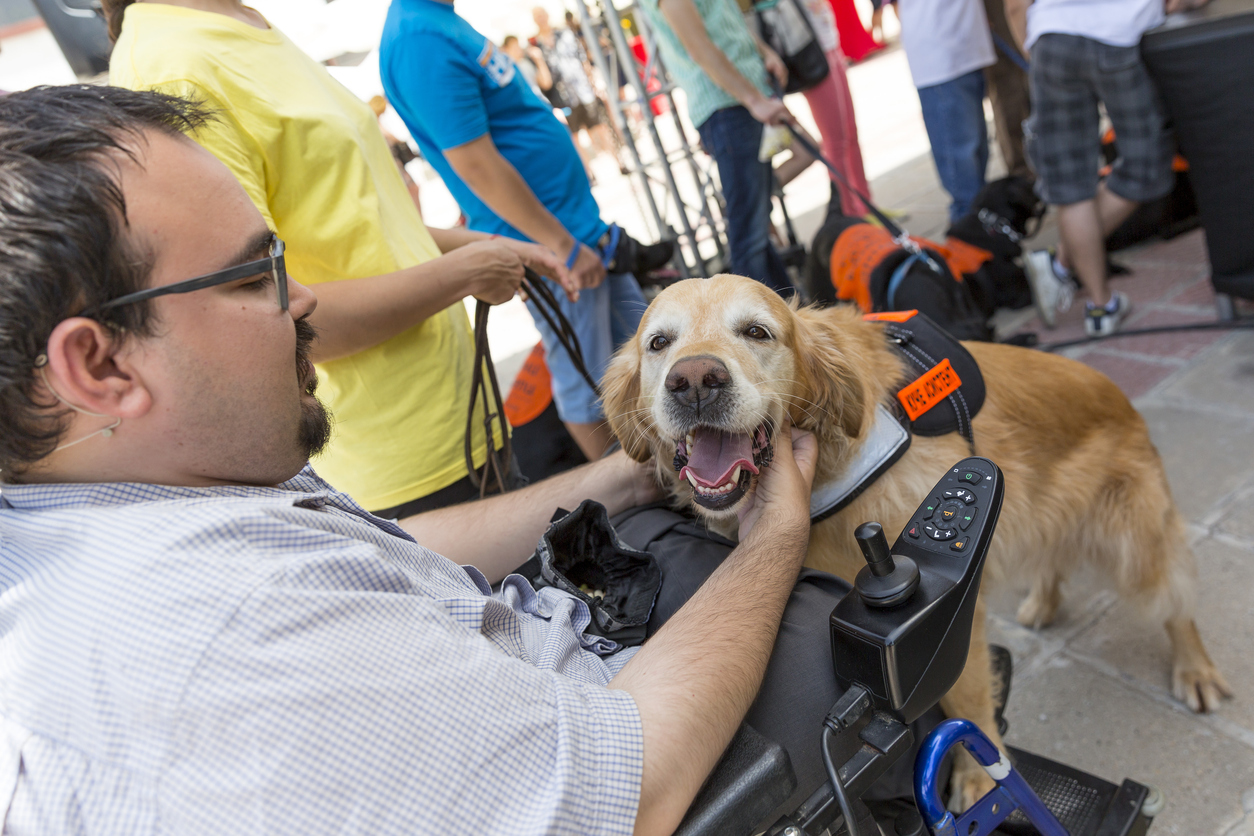As enforcers of Ohio’s Laws Against Discrimination, the Ohio Civil Rights Commission acknowledges the differences between a mere pet, an emotional support animal, and an assistance or service animal and the legal rights owners of each animal may or may not have in places of public accommodation. However, the Commission recognizes business owners and managers may not be as familiar with the differences and may be reluctant to refuse service to anyone with an animal for fear of violating the rights of a person with disabilities in places of public accommodation. So what are the differences between these types of animals and what rights do people with disabilities and business owners have?
Three Types of Animals in Places of Public Accommodation
- Pets – trained or untrained animals that do not perform any work or tasks to help aid a person with a disability.
- Emotional Support or Comfort Animals – trained or untrained companion animals that a medical professional deems to have a benefit for a person with a disability. This animal does not perform specific work or tasks to assist a person with disabilities. For example, a dog that calms a person with an emotional disorder when that person pets it could be an emotional support animal.
- Service or Assistance Animals – animals trained to perform work or specific tasks to assist a person with disabilities. For example, a dog that guides a visually impaired person around obstacles or alerts a person with epilepsy to an impending seizure may be considered a service or assistance animal. Ohio law does not restrict assistance animals to dogs.
Under state and federal fair housing laws, housing providers and condominium associations with no-pet policies are required to allow residents to have emotional support or comfort animals as a reasonable accommodation of a disability. In many circumstances, business owners may choose to permit emotional support animals or even pets, but Ohio law does not similarly require accommodation of emotional support or comfort animals in places of public accommodation. However, businesses are required to make reasonable accommodations for service or assistance animals in places of public accommodation. Businesses cannot charge extra admission or fees for a service animal.
How does a business owner or manager know if an animal is a service or assistance animal?
Ohio businesses operating as places of public accommodation can legally ask patrons with an animal the following two questions:
- “Is the animal required because of a disability?”
- “What work or task(s) has the animal been trained to perform?”
If the animal’s handler cannot answer these two questions or if the answer is that the animal is not required because of a disability or does not do any work or tasks, that handler is not protected by Ohio’s civil rights laws and the business can deny the handler the right to bring the animal into the establishment.
An owner, manager, keeper or proprietor of a place of public accommodation may not request medical documentation or certification of training, but the law does allow businesses to require service animals to be harnessed, leashed, or tethered unless such a restraint would interfere with the animal’s work.
Even service or assistance animals can be removed from a place of public accommodation if the animal’s handler cannot control the animal or if it is not housebroken. If a service animal is removed, the business should give the handler an opportunity to participate or enjoy the place of public accommodation without the animal.
For more details or OCRC’s guidance on animals in housing, employment, places of public accommodation and higher education, see OCRC policy T-31 Animal Assistants as a Reasonable Accommodation for Individuals with Disabilities.
